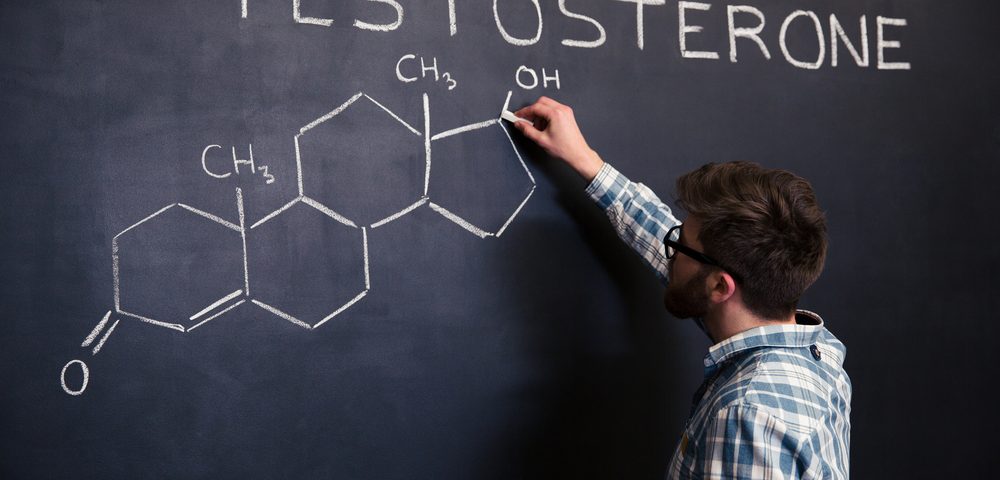Androgen deprivation therapy (ADT), a form of hormone therapy commonly used to treat prostate cancer, appears to confer protection against the virus that causes COVID-19, lowering the rate of infections and their severity, a new study suggests.
The study, “Androgen-deprivation therapies for prostate cancer and risk of infection by SARS-CoV-2: a population-based study,” was published in the journal Annals of Oncology.
COVID-19 is caused by the virus SARS-CoV-2. Recent research has shown this virus gets into cells by interacting with two proteins on the cells’ surface: ACE2 and TMPRSS2.
TMPRSS2 is expressed by cells throughout the body, including cells in the lungs and in the prostate. In both locations, this protein is regulated by the activity of androgens — so-called “male hormones,” with testosterone being the best-known. It has been demonstrated that increased androgen signaling leads to higher expression of TMPRSS2, and vice versa.
Androgens also drive the growth of some prostate cancers. ADT, as its name suggests, is a therapeutic strategy intended to reduce androgen signaling in the body. It is used commonly for prostate cancer treatment, and it is sometimes referred to as hormone therapy.
“Given that TMPRSS2 levels are under the control of androgens not only in the prostate but also in the lung, we put forward the hypothesis that [ADTs] may protect patients affected by prostate cancer from SARS-CoV-2 infections,” the researchers wrote.
The team, led by Andrea Alimonti, MD, a professor at the University of Italian Switzerland, Italy, collected data from Veneto, a region in Italy that has been heavily affected by COVID-19.
The researchers first looked at data from 9,280 people with a confirmed SARS-COV-2 infection in this region. Although there were more women than men among the infected (56% vs. 44%), men tended to develop more severe disease. More people hospitalized for COVID-19 were men (60%), and men accounted for the majority of deaths (62%).
Considering only the men, cancer patients were 79% more likely to develop SARS-CoV-2 infection. The researchers noted that infected people with cancer tended to be older than infected people without cancer.
“In sum,” the researchers wrote, “our data indicate that male cancer patients have an increased risk of SARS-CoV-2 infection and develop more severe forms of COVID-19.” These data are in line with recently published data from China.
The researchers noted that some of these results may be explained, at least partially, by biases: “SARS-CoV-2-infected cancer patients may have been tested at a greater rate than non-cancer patients since these patients are more often hospitalized,” they wrote. “This may explain the higher prevalence of infected individuals in the cancer patient population.”
The researchers then analyzed data for men with prostate cancer in Veneto. This included 5,273 treated with ADT, and 37,161 who received non-ADT treatments.
Among the ADT-treated, there were only four documented cases of SARS-CoV-2 infection. Only one of these was deemed severe disease (requiring intensive care), and none resulted in death.
In contrast, among prostate cancer patient who didn’t receive ADT, there were 114 documented SARS-CoV-2 infections, of which 31 were considered severe and 18 resulted in death.
The estimated rates of infection for prostate cancer patients who did or did not receive ADT were 76 and 318 infections per 100,000 people, respectively. Put another way, ADT was associated with a fourfold lower risk of infection. When a comparison was made between ADT-treated prostate cancer and all other types of cancer, ADT was associated with a more than fivefold decreased risk of infection.
In addition to reducing the risk of infection, ADT also lowered the chances of having severe disease by 4.4-fold compared to prostate cancer patients not receiving ADT, and by 5.9-fold compared to patients with other types of cancer.
“Altogether, these data indicate that androgen deprivation in prostate cancer patients is associated with a reduced probability to develop SARS-CoV-2 infections and with more positive infection outcomes,” the researchers wrote.
“This is the first paper to suggest a link between ADT and COVID-19,” Alimonti, MD, said in a press release. Alimonti noted that increased androgen signaling probably is at least part of the reason that men appear to be more severely affected by the virus.
“I hope that our findings inspire other clinicians to carry out clinical trials using transient ADT in men infected with COVID-19, in addition to other experimental therapies,” said Alimonti.
“Although these data need to be further validated in additional large cohorts of patients with COVID-19, they provide an answer to the hypothesis that androgen levels can facilitate coronavirus infections and increase the severity of symptoms, as has been seen in male patients,” he said.
Notably, most medications used in ADT are reversible — that is, a person can take them for a time, then stop taking them, without long-term biological effects.
“Given that the effects of these compounds are reversible, they could be used transiently (e.g. one month) in patients affected by SARS-CoV-2, thereby reducing the risk of side effects due to long-term administration,” the researchers wrote.

